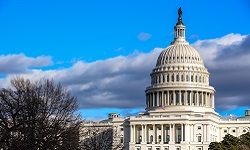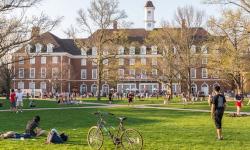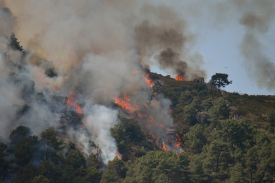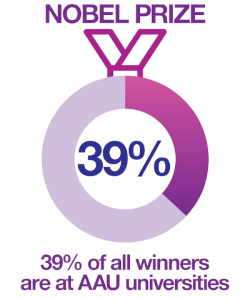 Lawmakers Reach Bipartisan Government Funding Deal
Lawmakers Reach Bipartisan Government Funding Deal
Senate Majority Leader Chuck Schumer (D-NY) and House Speaker Mike Johnson (R-LA) announced yesterday that they have reached a bipartisan deal to fund the federal government for the current fiscal year and to avoid a partial government shutdown. According to Politico, “the bipartisan agreement sets defense funding at $886 billion” and “non-defense funding at nearly $773 billion.”
While the topline agreement is reportedly $30 billion lower than the Democratic-controlled Senate included in its appropriations bills, it does not include the full cuts that the Republican-controlled House planned. The topline agreement also does not spell out how individual funding bills will implement the agreed-to overall spending levels or address remaining concerns about border security as well as military aid for Ukraine and Israel.
Congress now has until January 19 to pass four FY24 appropriations bills (Agriculture-FDA, Energy-Water, Military Construction-VA, and Transportation-HUD) to avoid a partial government shutdown. Congress has until February 2 to pass the remaining eight appropriations bills. As Politico explained, however, “A shutdown remains possible, with a host of thorny policy issues still unresolved, as well as conservative demands to attach GOP border reforms to spending legislation.” A partial government shutdown will lead to the furlough of many federal workers and affect a range of government services and activities, including scientific research.
 Homeland Security Academic Partnership Council Subcommittee Issues Recommendations on How DHS Can Promote Campus Safety
Homeland Security Academic Partnership Council Subcommittee Issues Recommendations on How DHS Can Promote Campus Safety
The Homeland Security Academic Partnership Council (HSAPC) subcommittee on School and Campus Safety Considering the Conflict in the Middle East, on which AAU President Barbara R. Snyder serves, recently released its recommendations to Homeland Security Secretary Alejandro Mayorkas on how to keep the academic community safe and promote inclusivity in light of tensions on campuses provoked by the October 7 Hamas attacks in Israel and the resulting conflict in Gaza. The subcommittee’s report contains a series of recommendations for DHS to consider.
The subcommittee noted that campuses need help identifying real threats of violence, when to de-escalate, and when to engage law enforcement. It found that many campus leaders are struggling to balance campus and school objectives related to free speech and creating a sense of belonging alongside identifying and managing threats.
The subcommittee’s recommendations to DHS include earmarking congressional funds for providing grants to campuses to meet safety needs and designating an individual from DHS to coordinate its campus safety work. The subcommittee also recommended that DHS make its existing resources on violence prevention and preparedness more readily available and that the White House convene a summit to address the issue of campus safety.
 NIH Working Group Makes Recommendations on Improving Postdoctoral Training
NIH Working Group Makes Recommendations on Improving Postdoctoral Training
Last month, the National Institutes of Health Advisory Committee to the Director accepted the recommendations and report issued by the NIH Working Group on Re-envisioning NIH-Supported Postdoctoral Training. AAU Deputy Vice President for Institutional Policy Emily Miller and Associate Vice President for Government Relations and Public Policy Lizbet Boroughs represented AAU on this year-long project.
The U.S. research enterprise is highly dependent on postdocs. The working group defines a postdoctoral scholar as “an individual who has received a doctoral degree or equivalent working in a term-limited position of mentored research and professional development to prepare for an independent career usually in research and teaching.” The working group has been gathering over the past few months to draft recommendations for how the NIH can best support postdocs and reverse the decline in the number of individuals interested in working as postdocs.
The working group advanced recommendations that include:
- Increasing the yearly pay and benefits for all NIH-supported postdocs to $70,000 and adjusting compensation annually for inflation. The working group also recommended limiting postdoctoral positions to no more than five years.
- Expanding mechanisms to support the full talent pool of postdoctoral scholars, including international scholars.
- Facilitating the transition of postdocs into their next career stage.
- Ensuring that career and professional development for postdocs occupies a minimum average of 10% of their time and that there is accountability for quality mentorship.
The working group assigned a timeline for implementing each recommendation. As STAT reported, it is now up to NIH Director Monica Bertagnolli to “decide whether to endorse the recommendations and determine how best to implement them.” AAU staff will continue engaging with the NIH on this important issue.
Coalition Groups Request Supplemental Funding for Research Activities at Key Federal Science Agencies
Five advocacy coalitions, including the Coalition for National Science Funding, the Energy Sciences Coalition, the Coalition for Aerospace and Science, the Tech Hub Advocacy Group, and the NIST Coalition (AAU is a member of the first three) recently sent a letter to the leaders of the House and Senate Appropriations Committees requesting $13 billion in supplemental funding for scientific research and economic development activities at key science agencies. Those agencies include the National Science Foundation, the Department of Energy Office of Science, and NASA.
The coalitions noted that Congress has already supported legislation to expand these agencies’ “missions in driving regional innovation, accelerating technology transfer and adoption, training the next-generation workforce, and creating the jobs of the future.” They noted, however, that the agencies need additional funding to meet these goals. “As Congress considers national security and domestic supplemental funding requests, a down payment on leading federal science and technology agencies is an investment in U.S. global leadership,” they argued.
News of Interest
The New Yorker: The Chancellor of Berkeley Weighs In – In an interview, University of California, Berkeley Chancellor Carol Christ discusses campus safety, student protests, free speech, and other related topics. Christ says that she believes the role of university leaders during these times of intense conflict is to “create a sense of belonging, or membership in the campus community, for all students.”
Inside Higher Ed: A Reboot for Rural Recruitment – Admissions officers from Washington University in St. Louis are traveling to small towns in Missouri and southern Illinois to encourage rural, low-income students to apply to the university. The visits are part of the institution’s “Heartland Initiative,” which seeks to expand college accessibility and features a “new summer college prep program” as well as “free workshops to support counselors at rural high schools.”
The Chronicle of Higher Education: ‘Frustration All Around’: The FAFSA’s Rocky Rollout – The Department of Education’s “soft launch” of the Free Application for Federal Student Aid (FAFSA) is leading to frustrated students and parents as the form “has been only intermittently available while the department continues to iron out some kinks.” Institutions use FAFSA to determine students’ “eligibility for federal grants, loans, and work-study jobs.”
NPR: Harvard University President Claudine Gay Resigns – Last Wednesday, Harvard University President Claudine Gay announced that she is stepping down. Harvard’s governing board has named the university’s provost and chief academic officer, Alan M. Garber, as the interim president.
The New York Times: Can an Ambitious Public University Still Be a Place for All Students? – In January last year, Governor Kathy Hochul designated Stony Brook University as one of New York’s “flagship” universities. Since then, the university has lived up to the honorary title by solidifying its profile as a “globally renowned research institution.” While some worry that “the school’s advancement will come at the cost of equity,” its president Maurie McInnis says that equity is “part of Stony Brook’s DNA.”
Featured Research

Rivers Rapidly Warming, Losing Oxygen; Aquatic Life May Be at Risk
Researchers at the Pennsylvania State University have “found that rivers are warming up and deoxygenating faster than oceans.” The study projects that river systems in the southern United States could “experience periods with such low levels of oxygen” in the future that they “could ‘induce acute death’ for certain species of fish.”

Wildfires Have Erased Two Decades’ Worth of Air Quality Gains in Western US
A new study by researchers at the University of Iowa has found that, in the western United States, the federal government’s efforts in the past 20 years to improve air quality through reductions in automobile emissions have been erased due to wildfires. The study estimates that wildfires led to “an increase of 670 premature deaths per year in the region” between 2000 and 2020
Stat of the Week

Faculty at AAU universities conduct groundbreaking research that advances scientific knowledge and improves the lives of millions. As of 2023, 39% of all winners of the Nobel Prize, which is awarded for achievements that have “conferred the greatest benefit to humankind,” were faculty members at AAU universities. In 2023, researchers from five AAU institutions (The Ohio State University, the University of Pennsylvania, Massachusetts Institute of Technology, Columbia University, and Harvard University) won Nobel Prizes in physics; physiology or medicine; chemistry; and economic sciences.